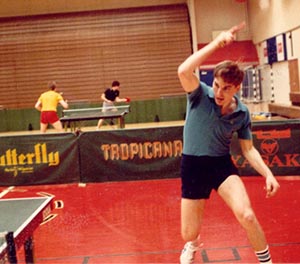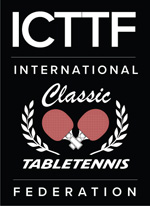Backhand Breakthrough
Yesterday a kid I was coaching had a major breakthrough. His forehand has been coming along really well, but his backhand . . . well . . . the stroke was awkward, the contact more like a jab then a stroke, often coming out dead or even with backspin. We've spent the last few weeks focusing on this. Usually it takes him about five minutes of hitting before he can start hitting it decently at even a slow pace, quite a contrast with his nice forehand, which he impatiently steps around to smash every chance since he too was getting sick of his problematic backhand.
And then, yesterday, we hit backhand to backhand, and lo and behold, it all come together. The stroke was textbook, the contact just right. We went backhand to backhand longer than usual as I wanted to really ingrain this. He'd been thinking about backhands a lot, and the visualizing seems to have worked. Let's just way I was pleasantly surprised. So was he.
He had additional incentive. I'd promised he could start working on backhand looping only after I declared his backhand "solid," and yesterday I did just that. I cautioned him that I wanted him to still focus on ingraining the regular backhand before we spend too much time on backhand loop, but next session he's going to finally get to backhand loop against backspin (multiball).
Adventures with Print on Demand and Ebooks, and No More Volunteering


 Photo by Donna Sakai
Photo by Donna Sakai




